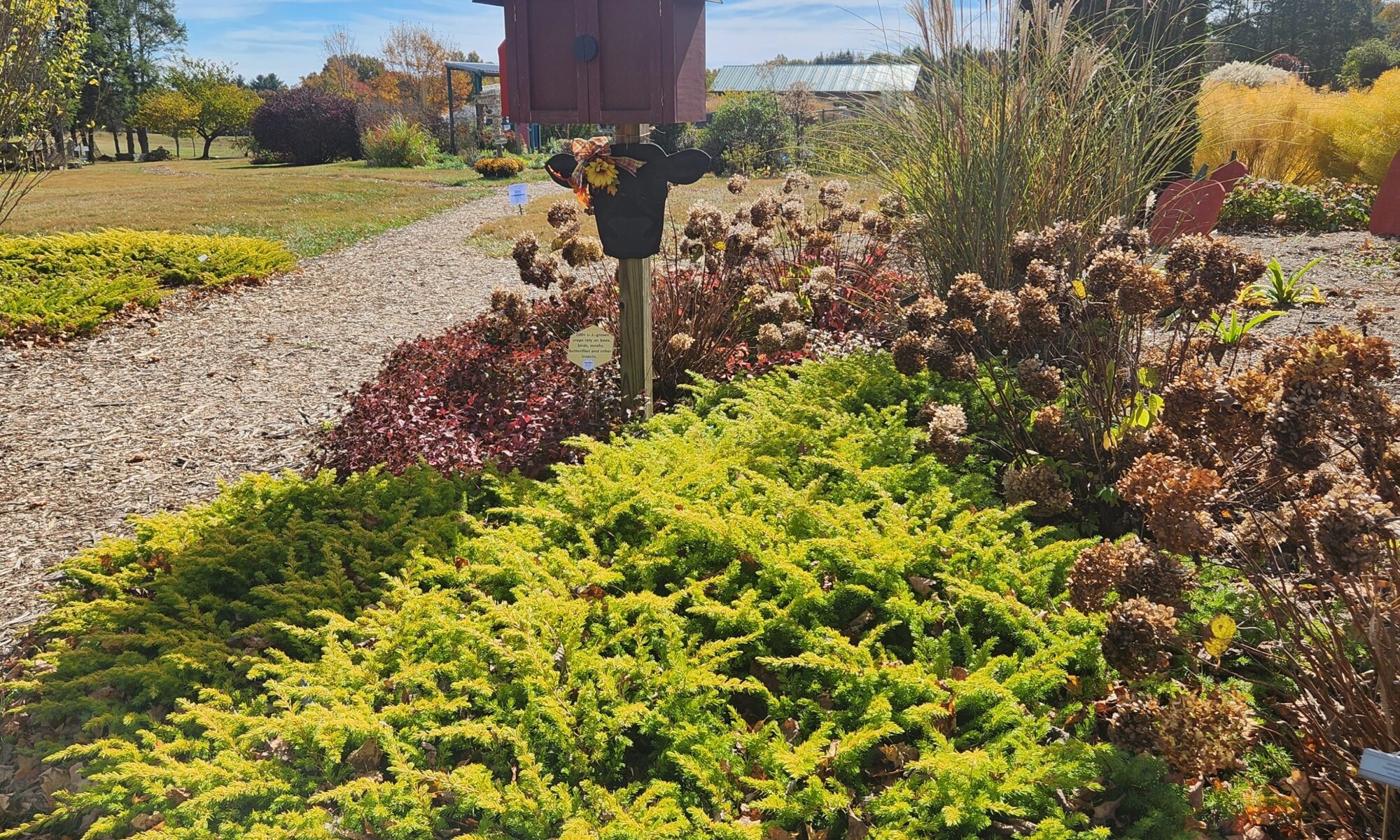
UT Gardens’ December Plant of the Month
Submitted by Shalena Durkot, Coordinator, UT Gardens, Crossville
What a show stopper! Juniperus conferta ‘All Gold’ regularly catches the eye of garden visitors with stunning gold foliage. It was discovered by a nurseryman in Australia and is a sport from Blue Pacific juniper, hence the often seen trademark name, Golden Pacific juniper.
The spreading shrub’s evergreen foliage remains vibrant gold throughout the year, taking on coppery-pink tones from late fall to winter. All Gold juniper grows well in part shade, but best coloration occurs with full sun exposure. It is not particular to soil type or pH as long as it is well drained. Additionally, it is tolerant of urban pollution and handles environmental salt. All Gold juniper is seldom damaged by deer, drought-tolerant (once established) and effective for erosion control. There are no serious insect or disease problems, making this an overall bullet-proof plant. USDA growing zones for All Gold juniper are 6 to 9 with both heat and cold tolerance, but it may suffer winter injury when temperatures drop to -10 degrees Fahrenheit.
All Gold juniper has a prostrate, dense, spreading growth habit, averaging one-foot tall and eight-feet wide in six to eight years. It is suitable as a specimen, foundation accent and groundcover, as well as an excellent choice for use along retaining walls. It looks particularly good en masse or anywhere it can cascade down over the edges. The brightly colored foliage of All Gold juniper pairs well with darker leafed plants and is a great addition to conifer gardens. It is easy to grow and requires very little to no maintenance or pruning. This award-winning shrub certainly deserves a place in the landscape and can be seen at all three University of Tennessee Gardens locations.
The UT Gardens includes plant collections located in Knoxville, Crossville and Jackson, Tennessee. Designated as the official botanical garden for the State of Tennessee, the UT Gardens are part of the UT Institute of Agriculture. The Gardens’ mission is to foster appreciation, education and stewardship of plants through garden displays, educational programs and research trials. The Gardens are open during all seasons and free to the public. For more information, see the Gardens website: utgardens.tennessee.edu.
The University of Tennessee Institute of Agriculture is composed of UT AgResearch, UT College of Veterinary Medicine, UT Extension and the Herbert College of Agriculture. Through its land-grant mission of research, teaching and extension, the Institute touches lives and provides Real. Life. Solutions. utia.tennessee.edu.